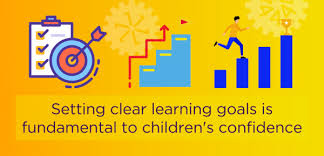Why Time Management Is the Key to Academic Success
In the journey of education, success doesn’t solely depend on intelligence or talent. One of the most crucial elements that determine academic achievement is time management. For students juggling classes, homework, exams, extracurricular activities, and personal life, mastering time can be the game-changer. Good time management not only reduces stress but also improves performance, confidence, and overall productivity.
This article explores why time management matters, how it impacts academic life, and strategies students can adopt to take full control of their time.
The Role of Time Management in Academics
Time is a finite resource. Every student has the same 24 hours in a day, but how they use those hours makes all the difference. When students manage their time effectively, they are able to complete assignments on schedule, revise regularly, avoid last-minute cramming, and still have time for rest and recreation.
Poor time management, on the other hand, often leads to missed deadlines, rushed work, burnout, and academic underperformance. The inability to plan and prioritize can cause even the brightest students to fall behind.
Benefits of Effective Time Management
- Reduces Stress and Anxiety
Students who plan their days are less likely to feel overwhelmed. With a clear schedule, tasks are broken into manageable chunks, and deadlines are met without panic. This reduces stress and boosts mental well-being. - Improves Focus and Efficiency
When students allocate specific time slots for studying, they are more likely to stay focused during that time. Avoiding multitasking and distractions allows them to study more effectively in less time. - Enhances Academic Performance
Time management ensures consistent study habits, timely revision, and better preparation. This leads to improved understanding, better grades, and academic success over time. - Promotes Better Work-Life Balance
Students often struggle to balance academics with social life, hobbies, or part-time work. Time management helps create a schedule where everything fits, including personal time and self-care. - Builds Responsibility and Discipline
Developing time management skills early in life builds discipline, responsibility, and habits that benefit students not just in academics, but also in their future careers.
Common Time-Wasting Habits in Students
Many students unknowingly fall into time-wasting patterns that hinder academic progress:
- Procrastination
- Excessive screen time or social media scrolling
- Multitasking between tasks
- Lack of goal-setting
- Not using a planner or timetable
Recognizing these habits is the first step toward change.
How to Improve Time Management Skills
- Set Clear Goals
Start by identifying what needs to be accomplished—daily, weekly, and monthly. Goals give direction and help in measuring progress. Break large goals into smaller, specific tasks to avoid feeling overwhelmed. - Create a Daily Schedule or Planner
Using a physical planner, digital calendar, or a time management app helps in organizing tasks. Allocate time blocks for studying, breaks, meals, and relaxation. Stick to your schedule as much as possible. - Prioritize Tasks
Not all tasks are equally important. Use the Eisenhower Matrix (urgent vs. important) or prioritize using the ABC method. Focus on what matters most first to make your time count. - Avoid Multitasking
Multitasking may seem efficient but often leads to reduced productivity and poor retention. Focus on one task at a time for better results. - Use the Pomodoro Technique
Study for 25 minutes, then take a 5-minute break. After four cycles, take a longer break. This technique helps maintain focus while preventing burnout. - Set Deadlines and Stick to Them
Even if your assignment is due in a week, set a personal deadline a few days earlier. This allows room for revision and unexpected interruptions. - Learn to Say No
Sometimes students take on too many commitments, which affects academic performance. Learn to say no to tasks that don’t align with your priorities. - Review and Reflect Weekly
At the end of each week, review what went well and what didn’t. Adjust your time management strategies accordingly.
Using Tools to Manage Time Better
Technology can be a great ally in managing time. Here are some useful tools:
- Google Calendar – For scheduling classes, study time, and reminders
- Todoist or Notion – For task lists and project planning
- Forest App – For staying focused and avoiding phone distractions
- Trello – For organizing assignments and tracking deadlines
- Evernote – For organizing class notes and resources
Balancing Academics with Other Activities
Effective time management doesn’t mean studying all the time. Students need time for exercise, hobbies, social interaction, and sleep. In fact, rest and recreation are essential for optimal brain function and long-term academic performance.
Students who manage their time wisely can make room for all aspects of life, which keeps them motivated, energized, and mentally healthy.
Developing a Time-Conscious Mindset
Time management is more than a technique—it’s a mindset. It’s about respecting your time, staying accountable, and making decisions with awareness. Developing a time-conscious approach can take time, but small daily improvements lead to long-term academic excellence.
Encourage self-discipline, avoid the perfectionist trap, and remind yourself that managing time well is a skill anyone can master.
Conclusion
Time management isn’t just a tool; it’s the foundation of academic success. It turns stress into structure, procrastination into progress, and chaos into clarity. Whether you’re a high school student preparing for exams or a university student balancing coursework and a job, managing your time well is key to unlocking your potential.
Start with small changes, stay consistent, and watch how your academic journey transforms. When you master your time, you master your learning—and ultimately, your future.


